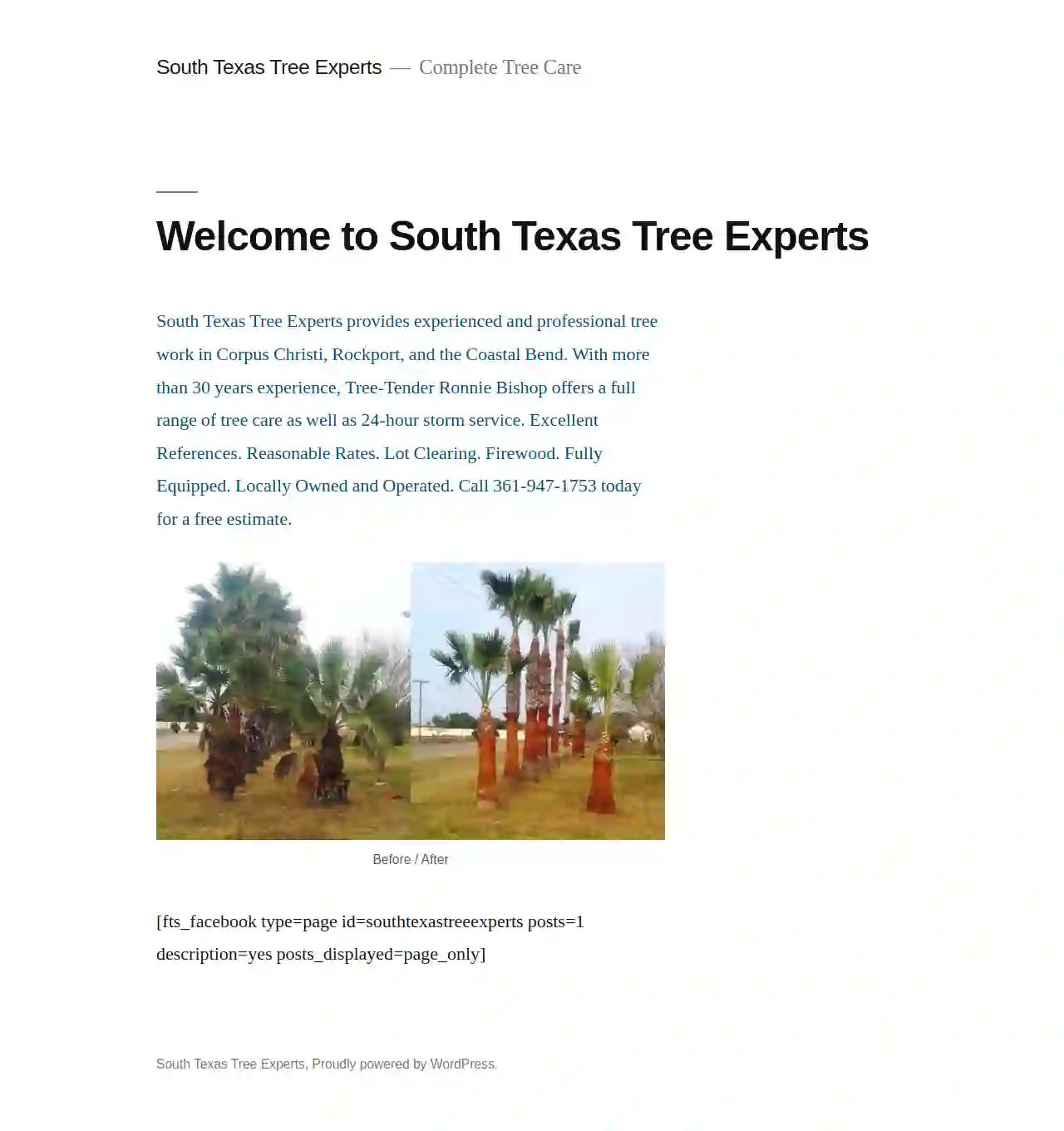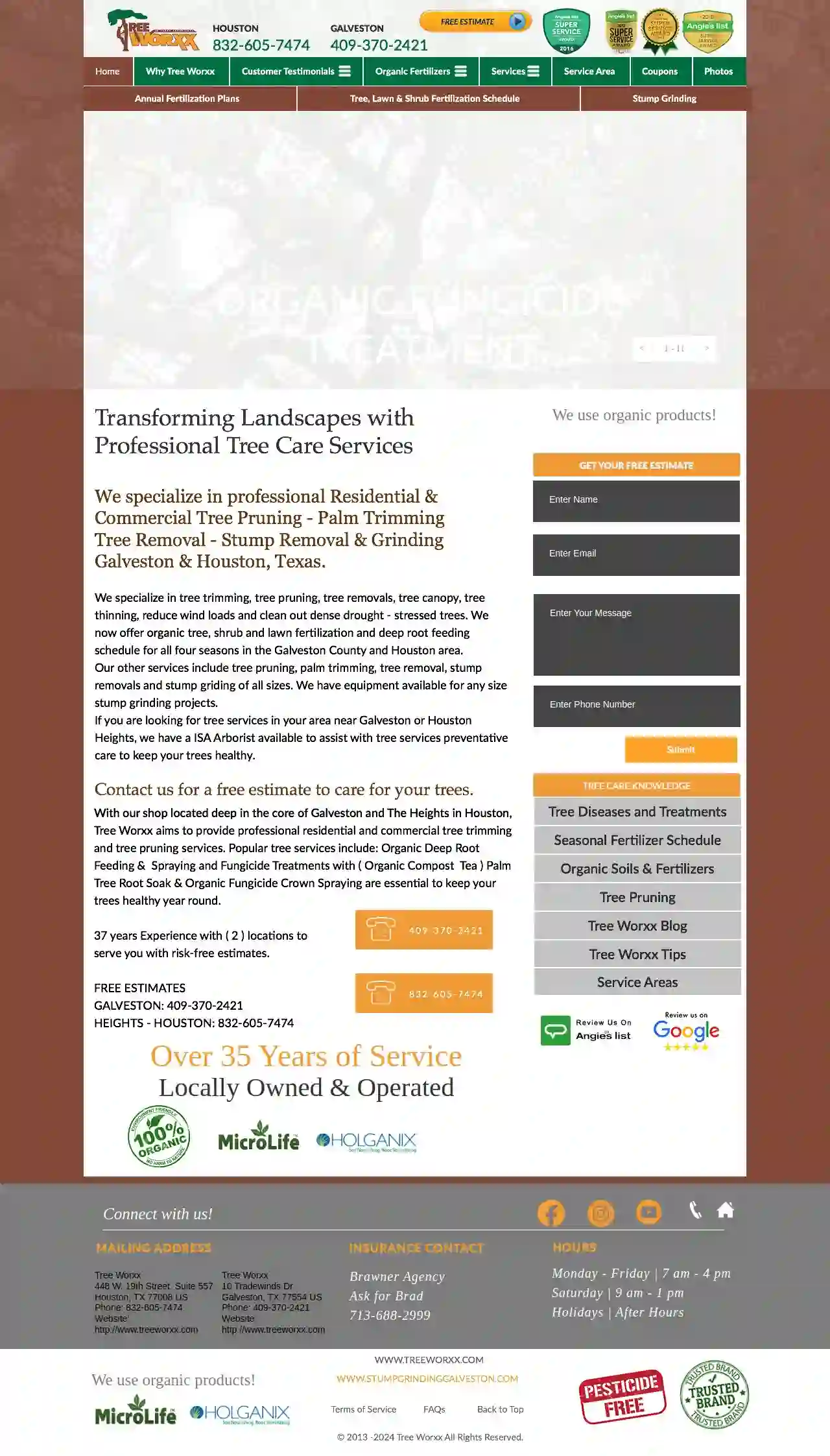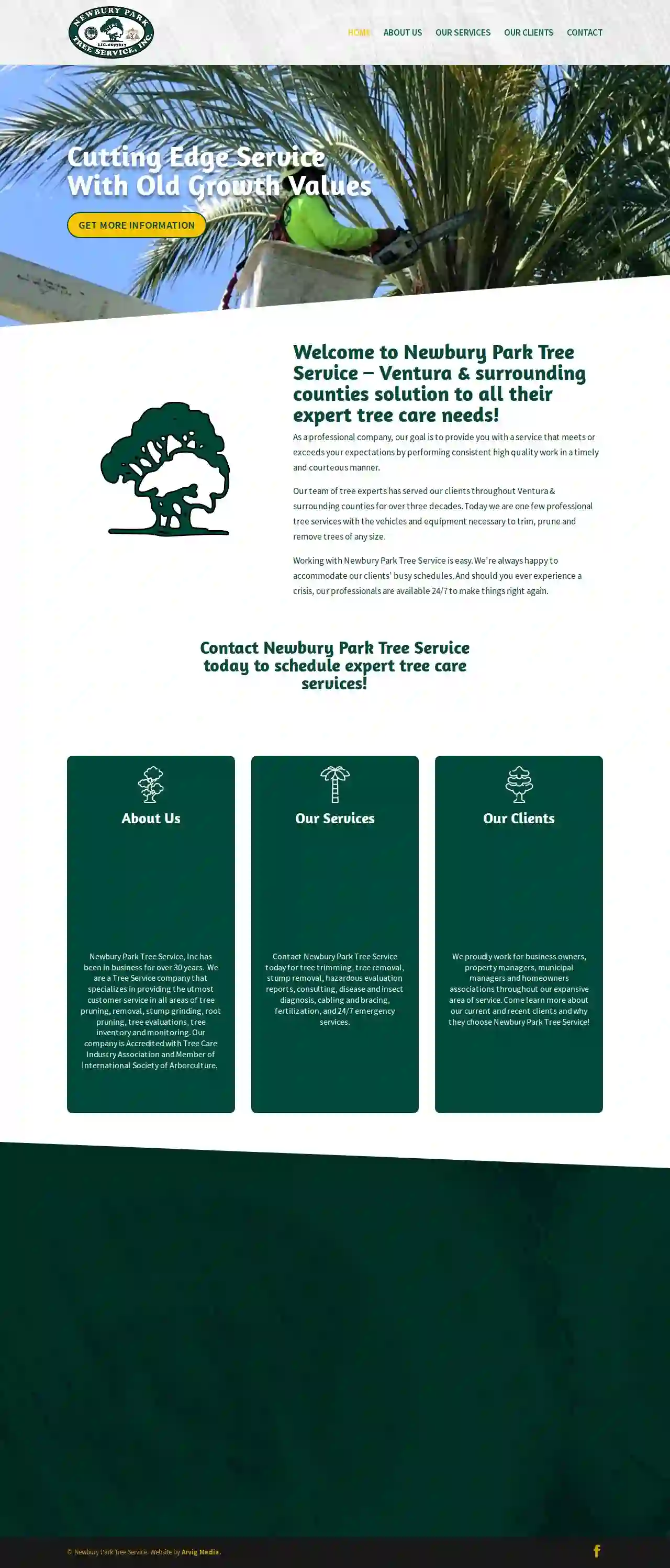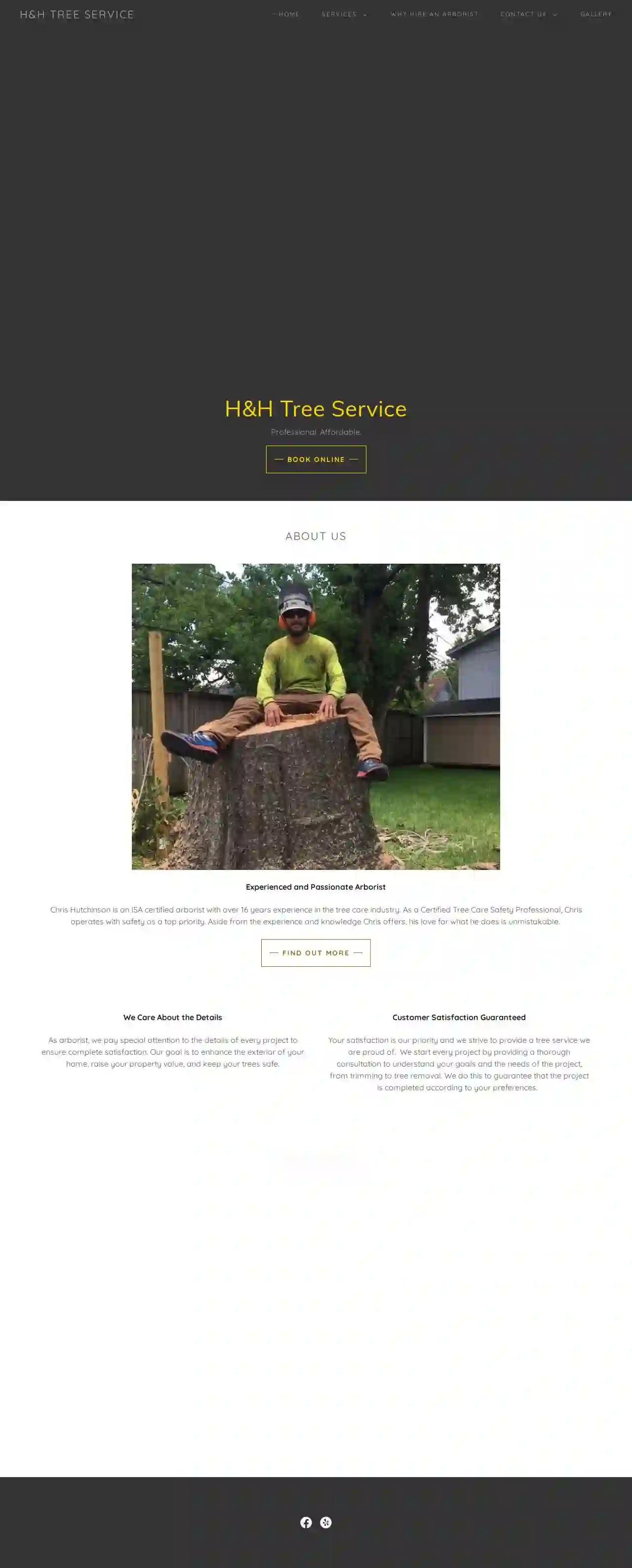Tree Service Ingleside
Best Tree Service in Ingleside
Get 3 FREE Tree Service quotes for your project today! Compare profiles, reviews, accreditations, portfolio, etc... and choose the best deal.

Sal's Tree Service Fort Worth
4.973 reviews1751 River Run Suite 200-31, Fort Worth, 76107, USSal's Tree Service Fort Worth has been the go-to tree service company in the Dallas-Fort Worth area for over 15 years. Our certified arborists provide exceptional tree care services, from tree trimming to stump removal, catering to residential and commercial properties. We offer a 10% discount for seniors and ensure all services are backed in writing. Our team is bonded and insured, providing the best tree maintenance and services possible.
- Services
- Why Us?
- Accreditations
- Gallery
Get Quote
South Texas Tree Experts
52 reviewsCorpus Christi, USSouth Texas Tree Experts provides experienced and professional tree work in Corpus Christi, Rockport, and the Coastal Bend. With more than 30 years experience, Tree-Tender Ronnie Bishop offers a full range of tree care as well as 24-hour storm service. Excellent References. Reasonable Rates. Lot Clearing. Firewood. Fully Equipped. Locally Owned and Operated.
- Services
- Why Us?
- Our Team
- Gallery
Get Quote
Texas Tree Cutters LLC
548 reviews2609 Chamberlain St, Houston, 77093, USTexas Tree Cutters LLC is a horticulture tree service company with years of experience. We specialize in tree trimming, pruning, removal, and stump grinding. Our insured and certified team makes us the perfect choice for your tree care needs. We provide quality workmanship and professional customer service and guarantee your satisfaction.
- Services
- Why Us?
- Testimonials
- Gallery
Get Quote
Alvarado Tree Trimming and Care
4.961 reviewsFort Worth, TX, 76107, USAlvarado Tree Trimming and Care is a trusted name in tree care, founded by Blas Alvarado. Located in Fort Worth, TX, our services extend to Keller, Weatherford, Aledo, Alvarado, Cleburne, and Crowley. As a fully insured, eco-friendly company, we’re committed to preserving the beauty of your landscape. Specializing in tree services for both residential and commercial clients, our skilled team ensures top-notch care for your green companions.
- Services
- Why Us?
- Accreditations
- Our Team
- Testimonials
- Gallery
Get Quote
Ortiz Tree Services & Landscaping
511 reviews123 Main St, Houston, 77539, USOrtiz Tree Services & Landscaping is a premier landscaping company offering a wide range of services, including tree trimming, tree removal, stump grinding, lawn care, stone and deck paving. For over 10 years, we have provided quality tree and landscaping services to the Houston and surrounding areas. Our team is dedicated to providing high-quality work, professionalism, honesty, and going the extra mile for clients at a fair price.
- Services
- Why Us?
- Accreditations
- Our Team
- Testimonials
- Gallery
Get Quote
Tree Worxx
527 reviews448 W. 19th Street, Suite 557, Houston, 77008, USTree Worxx is a locally owned and operated business that has been providing expert tree care services for over 35 years. They specialize in tree pruning, tree installation, stump removal, and stump grinding, using organic products such as Holganix and Microlife. Their team, led by Orvis 'Butch' Himebaugh, is dedicated to providing top-notch service and ensuring customer satisfaction.
- Services
- Why Us?
- Accreditations
- Our Team
- Testimonials
- Gallery
Get Quote
Corpus Christi Stump Grinding
51 reviewsCorpus Christi, Texas, 123 Main St, 78401, USCorpus Christi Stump Grinding is a local company located in Texas, dedicated to providing quality tree services in Corpus Christi. They offer a wide range of services including tree trimming, tree pruning, and emergency tree removal. Their team is passionate about the different types of trees in Texas and ensures that each tree is managed with the right procedure to avoid damage. They provide free estimates and upfront prices on all services provided.
- Services
- Why Us?
- Accreditations
- Our Team
- Testimonials
- Gallery
Get Quote
Ernest Garland Tree Service
557 reviews2248 Eddie Williams Rd, Johnson City, TN, 37601, USErnest Garland Tree Service is a trusted tree company in the Johnson City, Central, Kingsport, Bristol & Elizabethton, TN area. We provide top-notch tree care including tree removal, tree trimming, stump grinding, and emergency service & storm damage. Our team is licensed and insured, offering competitive pricing, discounts for law enforcement, and transparent service. With over 60 years of experience, we prioritize customer satisfaction and safety.
- Services
- Why Us?
- Accreditations
- Our Team
- Testimonials
- Gallery
Get Quote
Newbury Park Tree Service
51 reviews3595 Old Conejo Road, Newbury Park, 91320, USNewbury Park Tree Service, Inc has been in business for over 30 years. We are a Tree Service company that specializes in providing the utmost customer service in all areas of tree pruning, removal, stump grinding, root pruning, tree evaluations, tree inventory and monitoring. Our company is Accredited with Tree Care Industry Association and Member of International Society of Arborculture.
- Services
- Why Us?
- Accreditations
- Gallery
Get Quote
H&H Tree Service
4.954 reviews123 Main St, La Porte, 77571, USH&H Tree Service is a professional and affordable tree care service owned and operated by husband and wife team, Chris and Keeley Hutchinson. Chris is an ISA certified arborist with over 16 years of experience in the tree care industry. The company prioritizes safety and customer satisfaction, offering a range of services including pruning, tree removal, and arborist services. H&H Tree Service aims to enhance the exterior of homes, raise property values, and keep trees safe.
- Services
- Why Us?
- Accreditations
- Our Team
- Testimonials
- Gallery
Get Quote
Over 16,467+ Arborists in our network
Our tree care pros operate in Ingleside & beyond!
TreeServiceMatch has curated and vetted Top Tree Surgeons in and around Ingleside. Find a reliable pro today.
Frequently Asked Questions About Tree Services
- 10 feet away from foundations for small trees (mature height under 30 feet).
- 20 feet away from foundations for medium-sized trees (mature height 30-70 feet).
- 30 feet or more away from foundations for large trees (mature height over 70 feet).
- Safety: Tree work can be dangerous, especially when dealing with large trees or hazardous situations. Professional arborists are trained in safe climbing, cutting, and rigging techniques, minimizing the risk of accidents and injuries.
- Expertise: Certified arborists have the knowledge and experience to properly assess tree health, identify potential hazards, and recommend the best course of action.
- Specialized Equipment: Tree service companies have access to specialized tools and equipment, such as aerial lifts, cranes, and stump grinders, enabling them to handle complex jobs efficiently and safely.
- Efficiency: Professionals can complete tree work much faster than homeowners, saving you time and effort.
- Proper Cleanup: Reputable tree service companies will clean up the work area thoroughly, removing debris and leaving your property tidy. They'll also handle the disposal of tree waste responsibly.
- Peace of Mind: Hiring a professional provides peace of mind knowing that the job will be done correctly and safely. You'll also be protected by their insurance coverage in case of accidents or damage.
- Leaf discoloration or spots: Yellowing, browning, or spotting on leaves can indicate fungal infections, nutrient deficiencies, or other problems.
- Premature leaf drop: Losing leaves earlier than usual or outside of the normal seasonal cycle can be a sign of stress or disease.
- Dieback of branches: Branches dying from the tips inward can indicate disease, insect infestation, or drought stress.
- Cankers or lesions: Sunken or discolored areas on the bark can indicate fungal or bacterial infections.
- Mushrooms or conks growing on the trunk or roots: These are often signs of decay fungi.
- Wilting or drooping leaves: Can indicate a lack of water, root damage, or vascular disease.
- Extensive dieback: Large portions of the tree's crown are dead, with no signs of new growth.
- Severe bark damage: Large sections of bark are missing or severely damaged, exposing the inner wood.
- Root decay: Mushrooms or conks growing at the base of the tree, indicating fungal decay in the root system.
- Leaning precariously: The tree is leaning significantly and showing signs of instability.
- No leaves or buds: During the growing season, the tree is completely bare of leaves and shows no signs of new buds forming.
- Woodpecker holes: While a few woodpecker holes are not necessarily a cause for concern, numerous holes can indicate insect infestation or decay within the tree.
How close to a house can you plant a tree?
What are the benefits of hiring a professional tree service?
How do I know if my tree is diseased?
How do I know if a tree is dying?
How close to a house can you plant a tree?
- 10 feet away from foundations for small trees (mature height under 30 feet).
- 20 feet away from foundations for medium-sized trees (mature height 30-70 feet).
- 30 feet or more away from foundations for large trees (mature height over 70 feet).
What are the benefits of hiring a professional tree service?
- Safety: Tree work can be dangerous, especially when dealing with large trees or hazardous situations. Professional arborists are trained in safe climbing, cutting, and rigging techniques, minimizing the risk of accidents and injuries.
- Expertise: Certified arborists have the knowledge and experience to properly assess tree health, identify potential hazards, and recommend the best course of action.
- Specialized Equipment: Tree service companies have access to specialized tools and equipment, such as aerial lifts, cranes, and stump grinders, enabling them to handle complex jobs efficiently and safely.
- Efficiency: Professionals can complete tree work much faster than homeowners, saving you time and effort.
- Proper Cleanup: Reputable tree service companies will clean up the work area thoroughly, removing debris and leaving your property tidy. They'll also handle the disposal of tree waste responsibly.
- Peace of Mind: Hiring a professional provides peace of mind knowing that the job will be done correctly and safely. You'll also be protected by their insurance coverage in case of accidents or damage.
How do I know if my tree is diseased?
- Leaf discoloration or spots: Yellowing, browning, or spotting on leaves can indicate fungal infections, nutrient deficiencies, or other problems.
- Premature leaf drop: Losing leaves earlier than usual or outside of the normal seasonal cycle can be a sign of stress or disease.
- Dieback of branches: Branches dying from the tips inward can indicate disease, insect infestation, or drought stress.
- Cankers or lesions: Sunken or discolored areas on the bark can indicate fungal or bacterial infections.
- Mushrooms or conks growing on the trunk or roots: These are often signs of decay fungi.
- Wilting or drooping leaves: Can indicate a lack of water, root damage, or vascular disease.
How do I know if a tree is dying?
- Extensive dieback: Large portions of the tree's crown are dead, with no signs of new growth.
- Severe bark damage: Large sections of bark are missing or severely damaged, exposing the inner wood.
- Root decay: Mushrooms or conks growing at the base of the tree, indicating fungal decay in the root system.
- Leaning precariously: The tree is leaning significantly and showing signs of instability.
- No leaves or buds: During the growing season, the tree is completely bare of leaves and shows no signs of new buds forming.
- Woodpecker holes: While a few woodpecker holes are not necessarily a cause for concern, numerous holes can indicate insect infestation or decay within the tree.